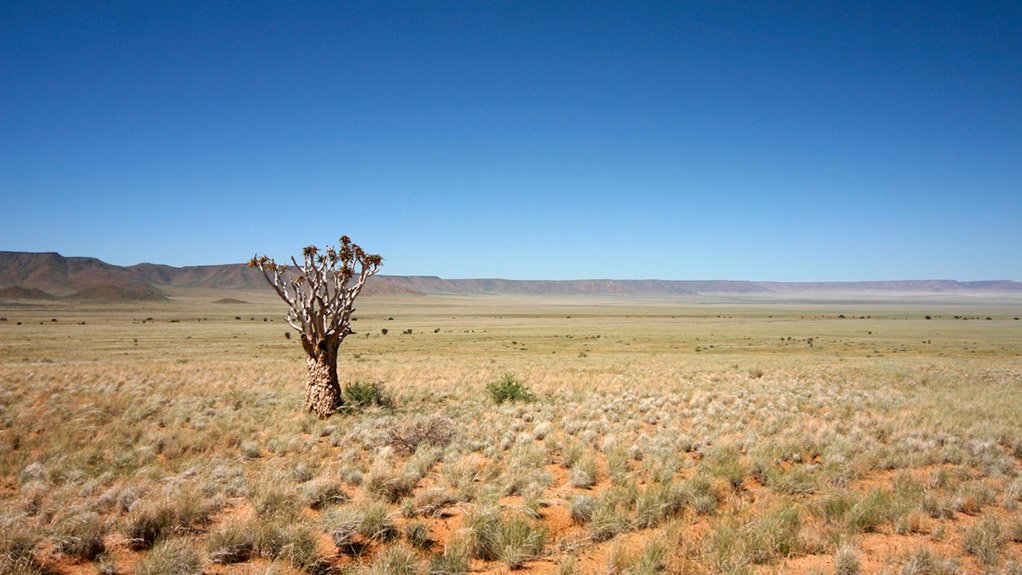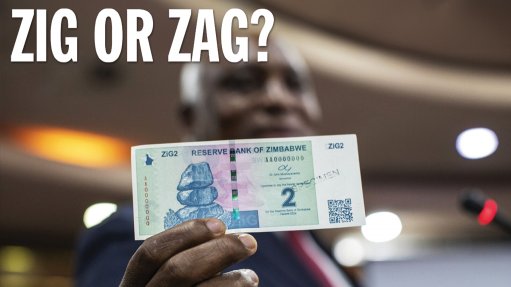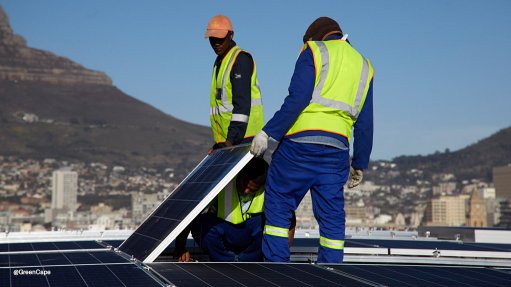Shale gas – let the science speak says WRC
Amid increasingly heated debates over the impact of mooted shale gas extraction in the Karoo, Water Research Commission water research manager Dr Shafick Adams said it was time South Africa gave science a chance to speak.
Speaking during a question and answer session at the Geological Society of South Africa’s (GSSA) Geohydrology for Geologists conference last week, he said proponents were arguing past each other and that the politics – jumping ahead of science – was now in the way.
“Let the science speak,” Adams said, noting that over the next two to three years, the answers would start to emerge.
“There are 51 ways to do it [extract shale gas] and we have the chance to do it right,” he said, adding that it was an opportunity to review the lessons learnt by other countries.
While the exploitation of shale gas was a potential game changer for South Africa with regard to boosting energy security, mitigating carbon emissions and enabling economic and social gains, there were also potential negatives, such as water scarcity, potential toxicity and environmental degradation.
There had been particularly strong resistance against the proposed use of the shale gas extraction method hydraulic fracturing, or fracking.
As the final regulations for the exploration of shale gas in the Karoo were consolidated, Water and Environmental Affairs Minister Edna Molewa said people would “need to work out how to coexist” in the future through remaining sensitive to environmental concerns.
GSSA executive manager Craig Smith said there had been mixed reactions from the association’s members over shale gas exploitation, but, he pointed out that, there seemed to be a general consensus that a lot of information was lacking.
A technical team needed to examine and confirm whether the shale gas “was even there”.
“At this point it is just a huge research project,” he added.
University of the Free State Institute for Groundwater Studies researcher and hydrogeological consultant Fanie de Lange argued that the exploration period provided academics an “excellent research opportunity” on the back of the “very little scientific substance” available on hydraulic fracturing, the need for field measured observations and the “many unknowns” with regard to the Deep Karoo aquifers.
Comments
Press Office
Announcements
What's On
Subscribe to improve your user experience...
Option 1 (equivalent of R125 a month):
Receive a weekly copy of Creamer Media's Engineering News & Mining Weekly magazine
(print copy for those in South Africa and e-magazine for those outside of South Africa)
Receive daily email newsletters
Access to full search results
Access archive of magazine back copies
Access to Projects in Progress
Access to ONE Research Report of your choice in PDF format
Option 2 (equivalent of R375 a month):
All benefits from Option 1
PLUS
Access to Creamer Media's Research Channel Africa for ALL Research Reports, in PDF format, on various industrial and mining sectors
including Electricity; Water; Energy Transition; Hydrogen; Roads, Rail and Ports; Coal; Gold; Platinum; Battery Metals; etc.
Already a subscriber?
Forgotten your password?
Receive weekly copy of Creamer Media's Engineering News & Mining Weekly magazine (print copy for those in South Africa and e-magazine for those outside of South Africa)
➕
Recieve daily email newsletters
➕
Access to full search results
➕
Access archive of magazine back copies
➕
Access to Projects in Progress
➕
Access to ONE Research Report of your choice in PDF format
RESEARCH CHANNEL AFRICA
R4500 (equivalent of R375 a month)
SUBSCRIBEAll benefits from Option 1
➕
Access to Creamer Media's Research Channel Africa for ALL Research Reports on various industrial and mining sectors, in PDF format, including on:
Electricity
➕
Water
➕
Energy Transition
➕
Hydrogen
➕
Roads, Rail and Ports
➕
Coal
➕
Gold
➕
Platinum
➕
Battery Metals
➕
etc.
Receive all benefits from Option 1 or Option 2 delivered to numerous people at your company
➕
Multiple User names and Passwords for simultaneous log-ins
➕
Intranet integration access to all in your organisation





















